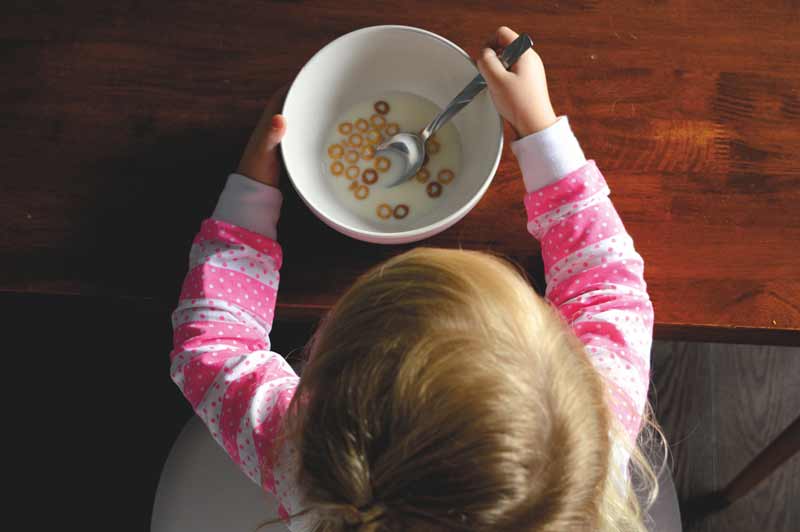Is Tiger parenting beneficial? [Examples + Pros & Cons]
In the parenting realm, the debate over “Is Tiger parenting beneficial?” sparks curiosity. Tiger parenting, known for its strict approach, has both advocates and critics. This article delves into real-life examples, presenting the pros and cons to help you navigate the intriguing landscape of parenting styles. Discover what works for you!
There are various forms of parenting in the world. Among them, tiger parenting is a strict form of parenting. Is tiger parenting beneficial? We can see that some parents try to teach and discipline their children smoothly, and some other parents, especially those with naughty children, follow Tiger parenting. Parents looking for various parenting methods focus much on tiger parenting.
Accordingly, I will discuss all the related information about tiger parenting in this article, “Is Tiger Parenting Beneficial?”. There, I will discuss what it is, how tiger parenting affects children, what the pros and cons of tiger parenting, and finally, I will come out with answers to the question: is tiger parenting beneficial?
Let’s get started.
Table of Contents
What is Tiger parenting?
The term tiger parenting came with the publication of “Battle Hymn of the Tiger Mother” by “Amy Chua” in 2011. She has written about her Chinese heritage and how it has affected her parenting choices. Her children were prohibited from playing computer games, watching TV, or getting lower grades than A.
Accordingly, she says this parenting affected the success of her children’s studies and argues that this is a very common form of parenting within Asia. She showed through this study that parenting in all these cultures is a mixture of supportive and powerful assertive types of parenting.
There are both justifications and criticisms for her arguments. Some people justify her argument by pointing to the success of her children. On the other hand, some others may argue that the parenting method does not give optimal developmental outcomes for the kids.
Tiger parenting is an authoritative, strict method of parenting that is meant for raising high-achieving children. This often means forgoing sleepovers, parties, and other leisure time activities to focus on their education.
Tiger parenting includes negative parenting at high levels, like strict rules. They are harsh parents who use negative parenting strategies. They demand that children follow a grueling schedule of extra-curricular activities and intensive studying, especially in high earning in, demanding jobs like medicine and law.
Tiger parents measure the success of their children through these types of achievements. Anyway, this parenting style is found worldwide. Chua, who is a Chinese-American writer, lawyer, and academic, and Kyoiku Mama from Japan are well-known examples of tiger parents who have used tiger parenting.
The academics Almudena Sevilla and Jose Ignacio Gimenez-Nadal have found that educated, driven mothers are commonly known as tiger parents due to lower levels of well-being in child-related things. Further, it says that tiger parenting is one of the parenting styles that can negatively affect both parents and children.
Not only that but through a study, it was also found that children under tiger parenting get a lower GPA than children under supportive parenting.
There are both pros and cons to this strict style of parenting. It has been problematic when giving advice to mothers worldwide and reinforcing the stereotypes about the groups.
How does Tiger parenting affect children?
It is said that tiger parenting can be harmful to the well-being as well as the academic success of children. They face higher rates of symptoms of depression, where they face feelings of alienation and academic pressure from parents. Therefore, most of the critics say that it isn’t effective.
The people who like tiger parenting believe that parenting style sets high levels of results and success for children. But as scholars say, that style of parenting can harm the mental health of the children.
Also, the children grown up with tiger parenting are mostly experiencing issues related to self-esteem as a result of the constant demands that are being placed in front of them.
They fear making mistakes and disappointing their parents as if they feel that they have not reached their standards. This is a well-intentioned parenting style. However, the researchers have found that this may lead to opposite outcomes of what is intended.
Also, it has been found that the children under tiger parenting haven’t achieved academic success than the children under alternate parenting styles.
Further, although parents who follow the tiger parenting style are associated with successful academic achievements, the critics say that there are many other forms of measuring a child’s accomplishment as positive personal attributes and being well-adjusted members of society.
According to “Liang,” tiger parenting has two main factors that have damaging effects.
- Unrealistic expectations: – It is not the same as expecting an A+ from an average child as expecting an A+ from a clever child.
- The relationship between the child and the parent: – If this is confiding, warm, and fun in all the other respects, this will counter-balance the intensity of higher demands.
As “Ling” says, parental approval greatly affects children’s self-esteem. As in tiger parenting, if this is given only when children get good grades in education, it will cause distress.
What are the pros and cons of tiger parenting?
Tiger parenting involves strict rules. So, Is tiger parenting beneficial? Let’s consider both the pros and cons of tiger parenting.
Tiger Parenting Pros
All parents like if their children become stars one day. So, although most scholars criticize it, there must be pros to tiger parenting. Accordingly, tiger parenting may include positive impacts like;
- Encourage self-discipline of children.
- Helps to develop a strong working ethic.
- Teaching children to challenge themselves.
- Helping children get to grips with problem-solving.
- Encouraging the children to focus on intrinsic motivation rather than external rewards.
Tiger Parenting Cons
As everything has negative and positive aspects, tiger parenting also has cons;
- Children become afraid to make mistakes.
- Tiger parenting can make children very self-critical and undermine their self-confidence.
- Children will blame themselves for not being perfect in everything they do.
- This also leads to the symptoms of depression and anxiety.
- Reducing the belief of children that they can accomplish goals.
- This may result in poor coping skills, leaving children dependent on others.
- The children will show maladaptive outcomes like anxiety, depression, and poor social skills.
- This style of parenting sets unreasonable and enormously high expectations for kids.
- There are also negative emotional and cognitive effects of having overly demanding goals.
Is tiger parenting beneficial? with statistics
The parents who practice tiger parenting believe in succeeding in the lives of children through strict rules. So, Is tiger parenting beneficial for children?
The parents think they are setting a high bar and installing a strong working ethic in their children. Ideally, This approach encourages self-discipline that they will often carry over into adulthood.
Children under tiger parenting also learn to become accustomed to working hard from an early age. Chua, who came out with the term tiger parenting for the first time through her book, describes it as purely power assertive.
Studies show a space for positive parenting techniques within many parents who practice tiger parenting. It involves being supportive and warm as opposed to being exclusively strict.
Of course, the children whose parents implement both aspects of tiger parenting will still feel supported despite being strongly encouraged to work hard.
We can see from the scholarly explanations that tiger parenting also has many benefits. Accordingly, Children become hard-working, motivated, and conscientious, growing into accomplished and successful adults.
As in the book Chua, many high-achieving parents have expectations for their children, which is not a negative point in her book. She points out inside-out parenting and depicts the importance of both skills.
Accordingly, outside things like music exams and academia and the inside things like social skills have been shown by her. What is important here is that kids know they are being supported and loved, which inspires self-esteem in children.
As a counterargument to tiger parenting, the publication Teach Your Children Well by Dr Madeline Levine was published. There, he discovered that teens from educated, affluent families who had undergone pressure to do things well were emotionally troubled most of the time at schools and universities places.
It also depicts that, contrary to tiger parenting, which tends to disregard sociability, employers are looking for well-rounded individuals with vital life skills like getting on with others.
On the other hand, research in 2013 has shown that tiger parenting not only harms children’s personal welfare but also their academic success. According to a study done by the University of Texas over eight years, around 444 Chinese-American families, 45% of parents were supportive, 20% were easy-going, 7% were harsh, and 28% were tiger parents. So, it also shows that not only has tiger parenting been overplayed, but it is also becoming outdated.
So, when going through all these things, it is clear that tiger parenting is not a completely unsuccessful parenting style. Still, it is also not completely beneficial because there are many criticisms and arguments about it.
Conclusion: Is tiger parenting effective?
We have discussed whether tiger parenting is beneficial for a child’s success in detail through this article. Here, you can clearly understand what tiger parenting is, how tiger parenting affects children, and what are the pros and cons of tiger parenting.
Finally, you can understand whether tiger parenting is beneficial as a parenting style. Therefore, I think this article will effectively work out for parents who are practicing the tiger parenting style.
Tiger parenting involves strict rules. It has both pros and cons where children become hard-working and self-disciplined as positive impacts of it, and it affects them negatively as being stressed under strict rules, getting symptoms of depression, anxiety, etc.
So, when considering all the impacts of tiger parenting, it can be cited that it is not completely good for children, although it has some positive impacts. Accordingly, choosing the best parenting style for your child to make his future more successful is in your hands.

![Is Tiger parenting beneficial? [Examples + Pros & Cons].jpg](https://edunursery.com/wp-content/uploads/2023/11/Is-Tiger-parenting-beneficial-Examples-Pros-Cons.jpg)


![Preschool Supply List For Parents [School Classroom Materials List]](https://edunursery.com/wp-content/uploads/2021/10/Preschool-Supply-List-For-Parents-Complete-Guide.jpg)


